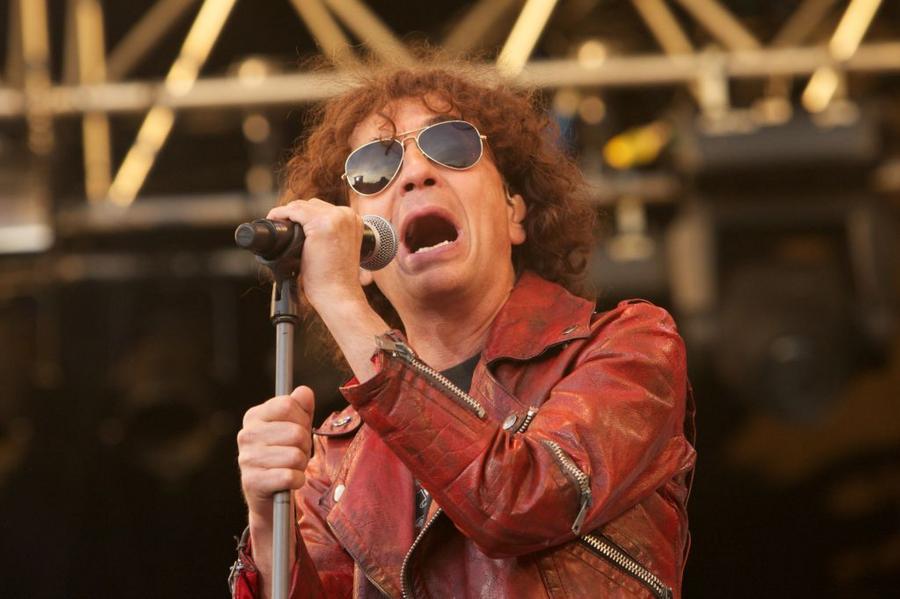What is Magnus Uggla's net worth?
Magnus Uggla is a Swedish artist, composer, actor, and radio host who has a net worth of $12 million.
Magnus Uggla stands as one of Sweden's most distinctive and controversial pop artists, combining rock, new wave, and pop music with sharp-tongued, satirical lyrics that often challenge Swedish society's norms. Since emerging in the mid-1970s, Uggla has maintained a prominent position in Swedish popular culture through his unique blend of provocative social commentary, theatrical performances, and catchy melodies. His career spans over four decades, during which he has released numerous hit albums, hosted television shows, and become known for his flamboyant persona and unflinching criticism of everything from class politics to popular culture.
Early Life and Musical Beginnings
Born Per Magnus Claes Uggla on June 18, 1954, in Stockholm, Sweden, he grew up in the affluent Östermalm district. This privileged upbringing would later become a source of both inspiration and self-deprecating humor in his music. In his youth, Uggla was heavily influenced by British glam rock, particularly artists like David Bowie and Roxy Music. He began his musical journey in the early 1970s, playing in various local bands before launching his solo career.
Rise to Fame
Uggla's debut album "Om Bobbo Viking" was released in 1975, showcasing his early glam rock influences. However, it was his 1977 album "Va ska man ta livet av sig för när man ändå inte får höra snacket efteråt" that marked his breakthrough. This album established his signature style of combining provocative lyrics with accessible pop melodies. During this period, he began developing his distinctive stage persona, characterized by theatrical performances and a unique vocal style that would become instantly recognizable to Swedish audiences.

(Photo by Ragnar Singsaas/Redferns via Getty Images)
Musical Evolution and Commercial Success
Throughout the 1980s and 1990s, Uggla successfully adapted to changing musical trends while maintaining his artistic integrity. His 1983 album "Välkommen till folkhemmet" marked a shift toward new wave and synth-pop, producing several hits that remain popular today. Albums like "35-åringen" (1989) and "Alla får påsar" (1993) demonstrated his ability to stay relevant while continuing to challenge societal norms through his lyrics.
Lyrical Themes and Social Commentary
What sets Uggla apart from his contemporaries is his sharp social satire and willingness to tackle controversial subjects. His lyrics often address class differences, social hypocrisy, and Swedish cultural phenomena with a mixture of humor and criticism. He frequently uses his own privileged background as a starting point for broader social commentary, making fun of both himself and the upper-class world he comes from. This self-aware approach has helped him maintain credibility while criticizing various aspects of Swedish society.
Media Presence and Later Career
Beyond music, Uggla has maintained a strong presence in Swedish media, appearing as a television host and personality. He has participated in popular programs like "Så mycket bättre" and written columns for various publications. His outspoken nature and willingness to engage in public debates have kept him relevant well beyond his peak musical years. In recent decades, he has continued to release music and perform, with his concerts drawing multiple generations of fans.
Legacy and Influence
Magnus Uggla's influence on Swedish popular culture extends beyond his musical achievements. He has helped shape the Swedish tradition of combining entertainment with social criticism, inspiring later generations of artists to address societal issues through their work. His unique ability to balance commercial success with artistic integrity and social commentary has earned him a special place in Swedish cultural history.
/2016/11/magnus.jpg)
/2018/09/david-clayton.jpg)
/2016/07/heather-small-1.jpg)
/2015/02/GettyImages-451678577.jpg)
/2014/12/GettyImages-815231564.jpg)
/2018/01/ch.jpg)
/2020/07/mlp.jpg)
/2010/01/Deryck-Whibley.jpg)
/2020/07/jl.jpg)
/2010/01/GettyImages-183679600.jpg)
/2022/10/Anne-Murray.jpg)
/2014/09/Kim-Delaney.jpg)
/2009/11/Tim-Duncan.jpg)
/2023/01/lance-armstrong.jpg)
/2021/04/Sara-Gilbert.jpg)
/2025/03/Kelli-Ferrell.jpg)
/2010/05/Jaleel-White.jpg)
/2016/11/magnus.jpg)
/2018/01/ch.jpg)
/2015/12/Monica-Naranjo.jpg)
/2016/07/heather-small-1.jpg)
/2018/09/david-clayton.jpg)
/2015/02/GettyImages-451678577.jpg)
/2019/11/hf2.jpg)
/2014/06/GettyImages-468905150.jpg)